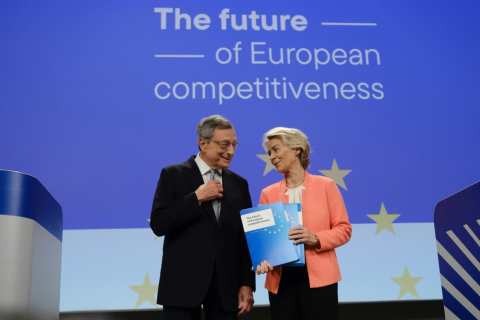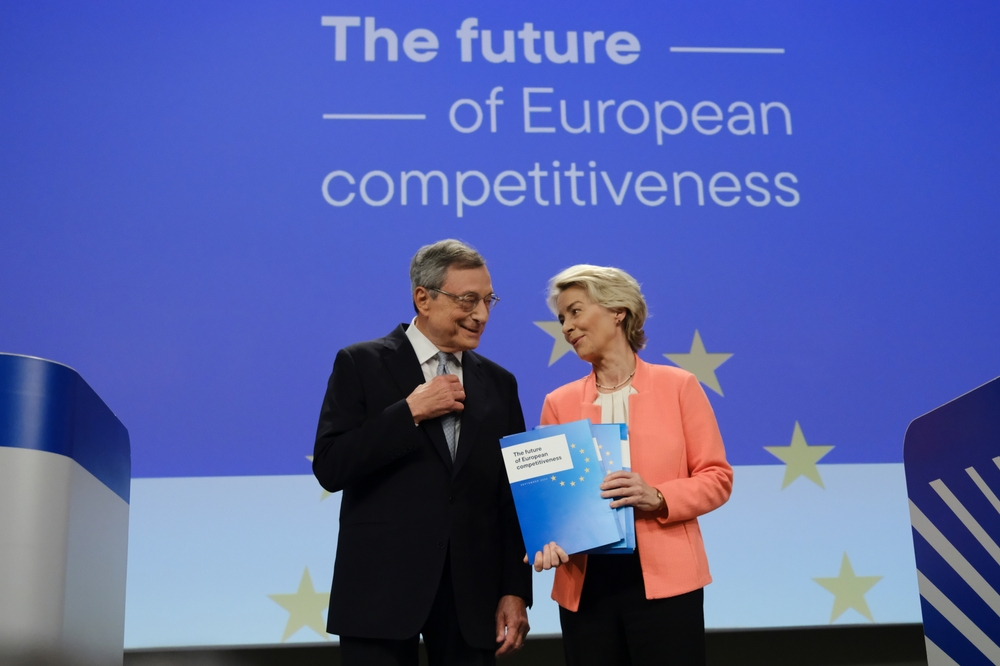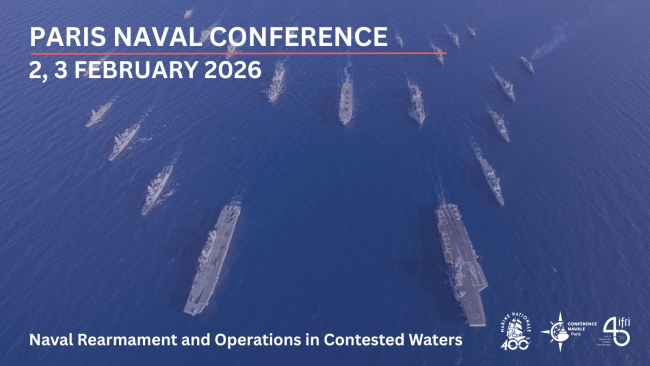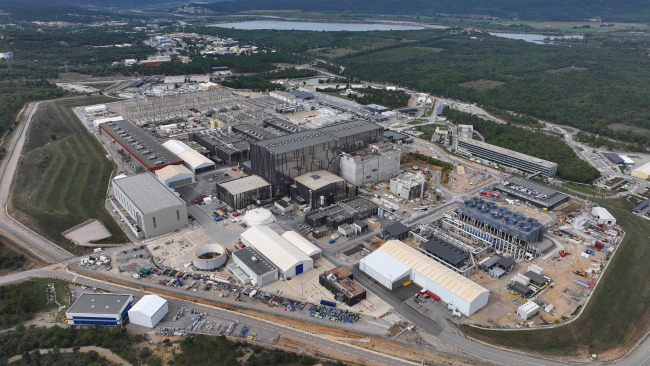
Practical information
Accessibility
Themes and regions
Related centers and programs

The competitiveness of the European Union (EU) has become one of the main challenges for the new European Commission. To ensure Europe's competitiveness, prosperity, and global role as a long-term geopolitical player, efforts must be made to bridge the gaps in growth, productivity, investment, and innovation between the EU and its main competitors.
In their respective reports, Enrico Letta and then Mario Draghi warned of the challenges Europe faces in competing with the United States and China. Faced with the risk of the EU falling behind, the weaknesses identified are notably the fragmentation of the European market, which prevents it from achieving economies of scale compared to China or the United States, but also the excess of bureaucracy that constrains Europe's capacity for innovation. Finally, the EU is suffering from a digital lack and a lack of investment in research and development, which risks widening the gap with the United States and China.
On the 28 May 2024, during the Franco-German Ministerial Council in Meseberg, France and Germany produced a Franco-German initiative for the competitiveness of the EU. This has largely been integrated into the work program of the new Commission.
Are Germany and France in a position to agree on a common dynamic? Can the two countries, with their respective weight within the EU and despite the domestic policy challenges they face, give a common impact to the EU's economic and industrial policy? How can the current political difficulties and the questioning of the industrial and commercial model, which made Germany the locomotive of the EU, be a hindrance to this dynamic?
Program
Opening remarks
Paul Maurice, Secretary General of the Study Committee on Franco-German Relations (Cerfa), Ifri
Speakers
Garance Pineau, general director of the French Employers' Confederation (Medef), former European advisor to the President of the Republic
Sébastien Jean, professor at the Conservatoire national des arts et métiers(CNAM), holder of the Jean-Baptiste Say Chair in Industrial Economics, and associate director of the geoeconomics and geofinance initiative at Ifri
Gregor Waschinski, correspondent in France for the German economic daily Handelsblatt
Chair : Marie Krpata, Research Fellow at the Study Committee on Franco-German Relations, Ifri
This event is open for public and will be held in French on Zoom, as part of the Franco-German Day.
Contact
Catherine NAIKER
Assistant to the Study Committee on Franco-German Relations (Cerfa), Ifri
Speakers
Related Subjects
Other events

Paris Naval Conference 2026: Naval Rearmament and Operations in Contested Waters
This fourth edition of the Paris Naval Conference (CNP), bringing together high-level military, industrial, and academic speakers, will address the challenges associated with general naval rearmament and naval operations in increasingly contested environments.

Is Fusion Coming Faster and Cheaper than Expected?
ITER was for long time the embodiment of fusion as an international, long standing R&D cooperation objective to seek a new way to produce safe, low carbon and abundant low carbon electricity. Yet over past years, fusion start ups, several governments and investors have decided to push fusion R&D and deployment to complement ITER. Major efforts are ongoing notably in the United States, China, Germany, Italy.

EV Supply Chains for Japan and Europe: Strengthening Economic Security
Economic security aims to ensure the resilience of supply chains for key industries: the case of electric vehicle production in Japan and Europe will be discussed.














